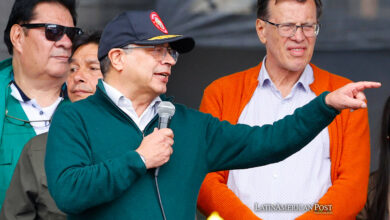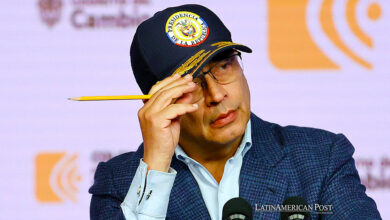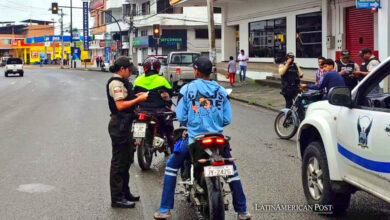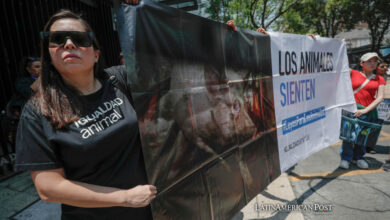Fallen Leader in the Dock: The Trial of Former Honduran President Hernandez and Its Echoes Across Latin America
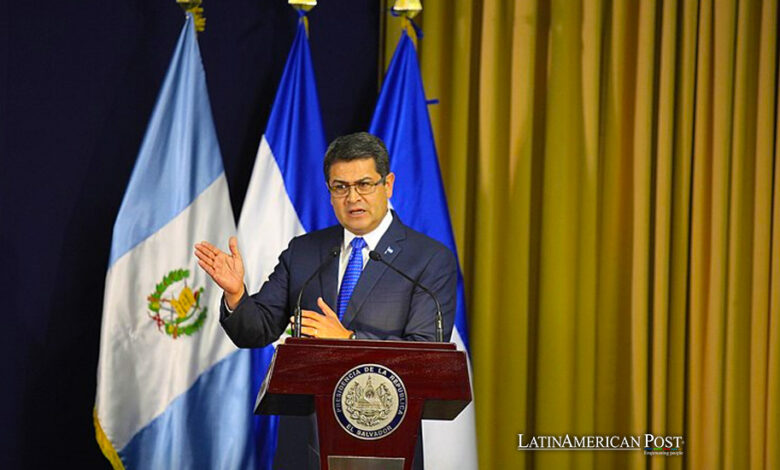
In a dramatic opening to Juan Orlando Hernandez’s U.S. drug trial; prosecutors depicted the former Honduran President as a critical player in a narcotic network that powered his political ascent. At the same time, his defense argued he was being unfairly targeted by those he once pursued.
A Deep Dive into Allegations and Complexities
The courtroom in New York was split with contrasting narratives about Juan Orlando Hernandez, the former President of Honduras. On one side, prosecutors painted him as a figure deeply entwined with drug traffickers who, in return for bribes amounting to millions, allegedly facilitated the shipment of vast quantities of cocaine to the United States. On the other, his defense argued that Hernandez was the victim of a smear campaign by criminals bearing grudges against his aggressive anti-cartel measures.
David Robles, leading the prosecution, accused Hernandez of exploiting his nation’s resources – its military, police, and judicial systems – to shield loyal drug traffickers. Despite his public anti-drug stance and partnership with the U.S., Hernandez’s presidency, spanning from 2014 to 2022, was, according to Robles, marked by covert operations that supported and protected narcotic operations.
Hernandez, 55, has vehemently denied these allegations, pleading not guilty. His defense, led by Renato Stabile, urged the jury to view with skepticism the testimonies of convicted felons seeking vengeance or leniency for their crimes. Stabile highlighted Hernandez’s legislative efforts against drug trafficking, including laws that permitted the seizure of traffickers’ assets and their extradition to the U.S., as evidence of his commitment to combatting narcotics.
Broader Implications: Latin America’s Struggle
The trial throws a spotlight not just on Hernandez but also on the broader battle against drug trafficking in Latin America and the complex relationship between political power and criminal enterprises in the region. Honduras, under Hernandez, received substantial U.S. support for its anti-drug efforts, yet the allegations suggest a deeply rooted conspiracy between state mechanisms and the drug trade.
This case resonates beyond Honduras, reflecting a pervasive issue in Latin America where the lines between narco-trafficking and political authority often blur. Neighboring countries like Guatemala, El Salvador, and Nicaragua have similarly grappled with accusations of political figures colluding with drug cartels. In Mexico, the trial of former Secretary of Public Security Genaro García Luna for drug trafficking charges in the U.S. underscores the widespread nature of these challenges.
The trial of Juan Orlando Hernandez is a critical moment for Latin America, spotlighting the need for robust institutions and international cooperation to dismantle the nexus of drugs and politics. As the region watches closely, the outcome may signal a turning point in the fight against narcotics, emphasizing the importance of integrity in leadership and the role of international law enforcement in upholding justice.
Questions on U.S. Foreign Policy and Assistance
The allegations against Hernandez and his trial in the United States also raise questions about the effectiveness of U.S. foreign policy and assistance in Latin America. While significant funds have been allocated to combat drug trafficking and improve security, the case suggests a need to reassess how these resources are deployed and ensure they contribute to genuine reform and stability.
Also read: The Hidden Truths in Honduras Prison Riot
As the trial progresses, it serves as a sobering reminder of the challenges facing Latin America in its quest to overcome the scourge of drug trafficking and corruption. It underscores the need for transparent governance, accountable leadership, and international solidarity to address these entrenched issues. The saga of Juan Orlando Hernandez, once a symbol of anti-drug cooperation with the U.S., now embodies the complexities and contradictions in the battle against narcotics in Latin America. The world watches as the trial unfolds, hopeful for justice and a more straightforward path forward in the regional fight against drug trafficking.

